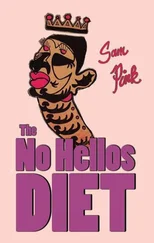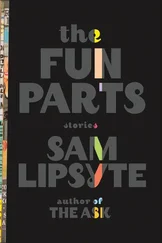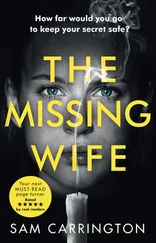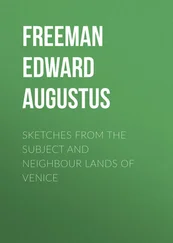"I don't think he wants money," said Maryse. "Am I right?"
"Yes," I said.
"I think he wants more than money. Am I correct?"
"Yes," I said.
"More than money is tough for me right now," said William.
I took a sip of cappuccino, coughed it up into the cup.
"That's not cardamom," said Maryse.
"Looks like blood," said Lem.
They gave me the guest room.
The guilt room, I heard William call it from the hallway. He'd have to work on his whisper.
His portfolio was in good shape, he told me, even in the wake of Cruel April, that rash of crashes last spring, and I was not to fret expenses. Besides, he'd had a little chat with Leon Goldfarb. Arrangements to ease various individual and collective burdens were in the offing.
"What does that mean?"
"You tell me," said William. "It sounded like Jew talk."
"Watch it," I said.
"Don't be a child," said William. "My uncle hid yids in Rotterdam."
"You never told me that."
"You never asked."
"What part of the war was this?"
"What war? This was the early seventies."
The guilt room was a good room.
I got fresh flowers, fresh linen, fresh fruit, audiotapes of tides and typhoons, waterfalls, gales, natural sounds to confirm one's droplet status in the eternal downpour. I got satellite TV, a universal remote, a Dictaphone for last words if the ligature of my pen hand failed.
I got my daughter, bedside, reading me box scores and poems. I couldn't fathom the math of either, but Fiona's voice eased the pain somehow. Maybe the pills did, too.
I sensed something torrid going on between Lem and my little girl. The idea made me glad. I liked to picture them in faraway rooms, confessing their secrets, flaunting their moles, vaulting themselves into some soulful teen future. William's place was enormous so I never saw those rooms. I was bed-bound, mostly, or wheelchair'd when my color was up and I could join them all for a few minutes at table, feign delight in food.
I was dying well, could detect a certain shimmer in the mirror, a made-for-TV terminal glow. I was going to light up the land with love and forgiveness, die with a wide wise grin. Angels in work casual sweaters would chaperon my ascent to paradise. Maybe my soul would return on occasion, spook my family into betterment. I'd smash a vase or burn a curtain and Fiona would finally know that nicotine was addictive, that sex with her soccer coach had repercussions.
Maryse was spooning broth through my teeth when she said she thought Fiona was no longer disaffected.
"She's flourishing," said Maryse.
"She's grown," I said.
"Lem seems like a good boy."
"He has a good heart."
"He's a little odd, though," said Maryse. "Is he on drugs?"
"Usually," I said.
"I guess people can change."
"Have I?"
"Have you what?"
"Changed."
"I see an arc," said Maryse. "A trajectory."
"Really?"
"Maybe not," said Maryse. "But sometimes it's about how you transform the people around you. Sometimes someone has to be the messenger."
"Is that me?"
"No," said Maryse.
"Who am I, then?"
"You're Steve."
"I refuse that," I said. "Even as life refuses me."
"Maybe it's not a refusal, Steve," said Maryse. "Maybe there is a higher power and he or she or it has plans for you."
"Do you believe that?"
"No," said Maryse.
"Van Winkie," said Lem, from the doorway.
"The Wrist," I said.
Lem sat down, chucked me under the chin.
"I just want to say that whatever happens, I'll take care of Fiona. I don't want you to worry about her."
"We know what's going to happen."
"Either way," said Lem.
"Okay," I said. "Either way."
"Do you want some morphine?"
"I'm fine."
"Do you mind if I have some?" said Lem. "You know, the stress. My girlfriend's dad is dying."
"Okay," I said. "Do me, too."
The Philosopher and the Mechanic dropped by for occasional visits. Transition maintenance, I heard the Mechanic call it.
Departure management, the Philosopher said.
It'd been nearly two years since my checkup.
"Do you remember when we first diagnosed you?" said the Philosopher.
"Sure."
"The salad days."
It was a time for testimonials, recollections, goodbyes, Godspeeds.
William the Fulfiller wanted absolution.
"What happened with me and Maryse, I know how much pain we caused you. It's tragic the way happiness hurts others."
"It's okay."
"We're happy," he said.
"I know."
"But it hurt you."
"Yes, it did."
"Exactly," he said. "I just wanted to be sure."
The Philosopher and the Mechanic said it could be any day. There was no way to calculate. By their calculations there could be no calculations. Me, I was on the uptick, the pain on slow fade, a new feeling in my veins, a deep living slither. People would be disappointed. I began to flutter my eyelids a bit, affect a weak grip, mutter cryptic phrases tinged with tiny history, a Dutch Schultz delirium of baby talk and birch nest slaughter.
"Cudahy," I said, "don't burn them, they're butterflies!"
"Who's the navigator? I'm the navigator. I'm the snack-giver. I'm your mommy in snacks."
"Some companies make powerful computers. We make powerful people."
"Perhaps the most prevalent trope in fire safety literature is the notion of the regrouping area. The family gathers at a point distant enough from the conflagration to prevent a singeing or charring of the ideation of domesticity."
"Vast gulfs may be received on vast gulf days. One radio equals one radio nation. I heard the tittering of Velcro. Naperton's grapefruit brain, my pupilage. True puny. Renee, Renee, my rivulet."
"Can't be long now," said the Mechanic.
"Is this all some kind of gag?"
Fiona sang to me, softly, our aardvark song:
Aardvark
Lovely aardvark
I have only the vaguest sense
Of what you look like
I know there's a nose
That works like a hose
Beyond that
I just have certain cultural associations
It was really more of a spoken-word piece.
"Daddy?" said Fiona.
"Yes, darling?"
"Do you remember when I was really sick and you ran through the streets with me in your arms?"
"My doll-daughter."
"What?"
"I remember."
"Do you think I suffered any brain damage from the fever?"
"What?"
"Sometimes I feel like I'm not as smart as I should be."
"You're almost a genius, Fiona."
"And I have to live with that almost every day of my life."
"I'm sorry, baby. But I think you're just fine."
"Daddy, when you're dead, I'm going to be so fucking pissed at you. Do you know that? It's a grief mechanism, or whatever, but I'm really going to hate your fucking guts for a while. It'll take a long time to work it all through. I've already warned Lem. He's okay with it. Lem is amazing, Daddy. Thank you for bringing him to me. He's like some kind of inner astronaut. He drifts along in the deep space of his consciousness like no one I've ever been with before. Daddy, do you know what I mean when I say 'been with'? I mean, of course you know. But that's the thing about euphemisms. Most of them are true. Ha! That's pretty funny. But what I really mean, Daddy, is have you ever pictured me being with someone? I know fathers and daughters are supposed to have this bond, I mean, I know they do, even when I was at my most disaffected and had to be boarded at the School for it, even then I felt it, Daddy, and I think we're all adult enough to allow that there's got to be some sexual element inherent in this bond, Daddy, but people tend to leave off right there, don't they? For good reason, I guess. But really, have you ever really pictured it? Like have you ever pictured me being pussy-licked, say? Or maybe titty-tugged? Butt-banged? Clit-bit? Have you, Daddy? Did any of those particular pictures ever light up your inner astronaut viewing screen? Me on my knobby knees, cooz up in the air like a hairy flower, some big cock, some huge anonymous fuck stick jabbing into my tight, wet, almost-genius-caliber twat, me moaning and bucking, moaning and bucking-"
Читать дальше












